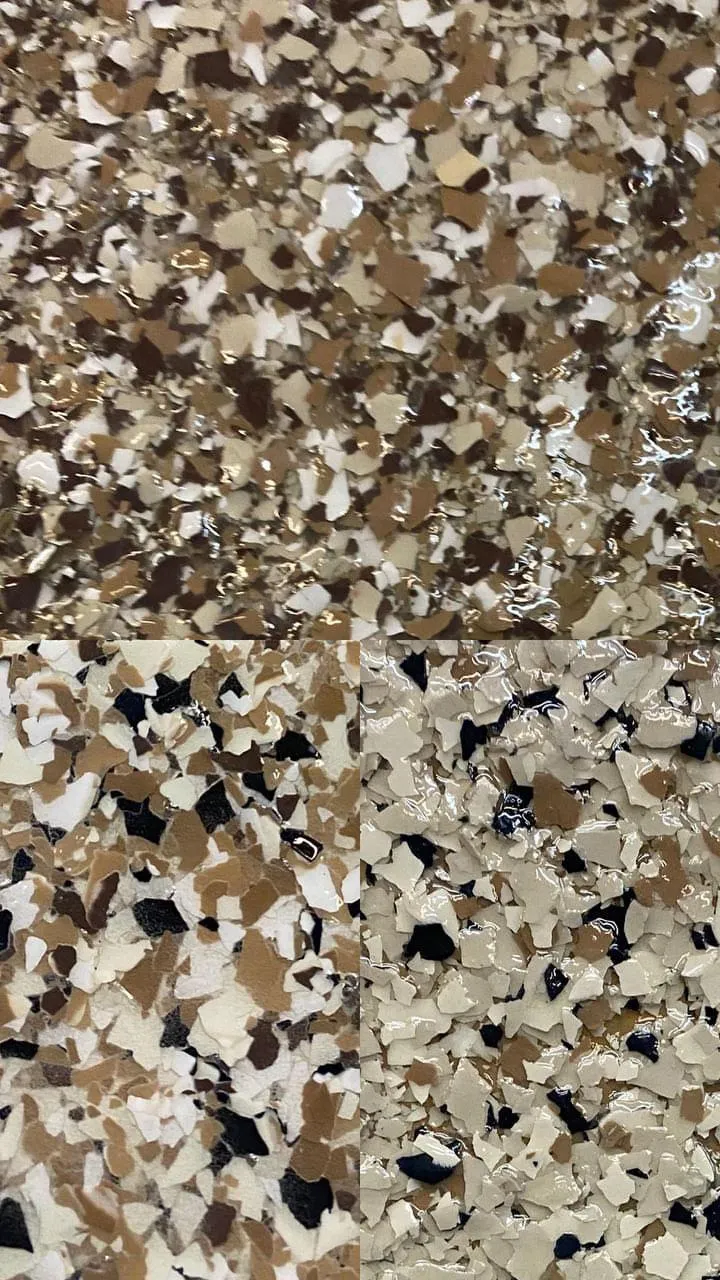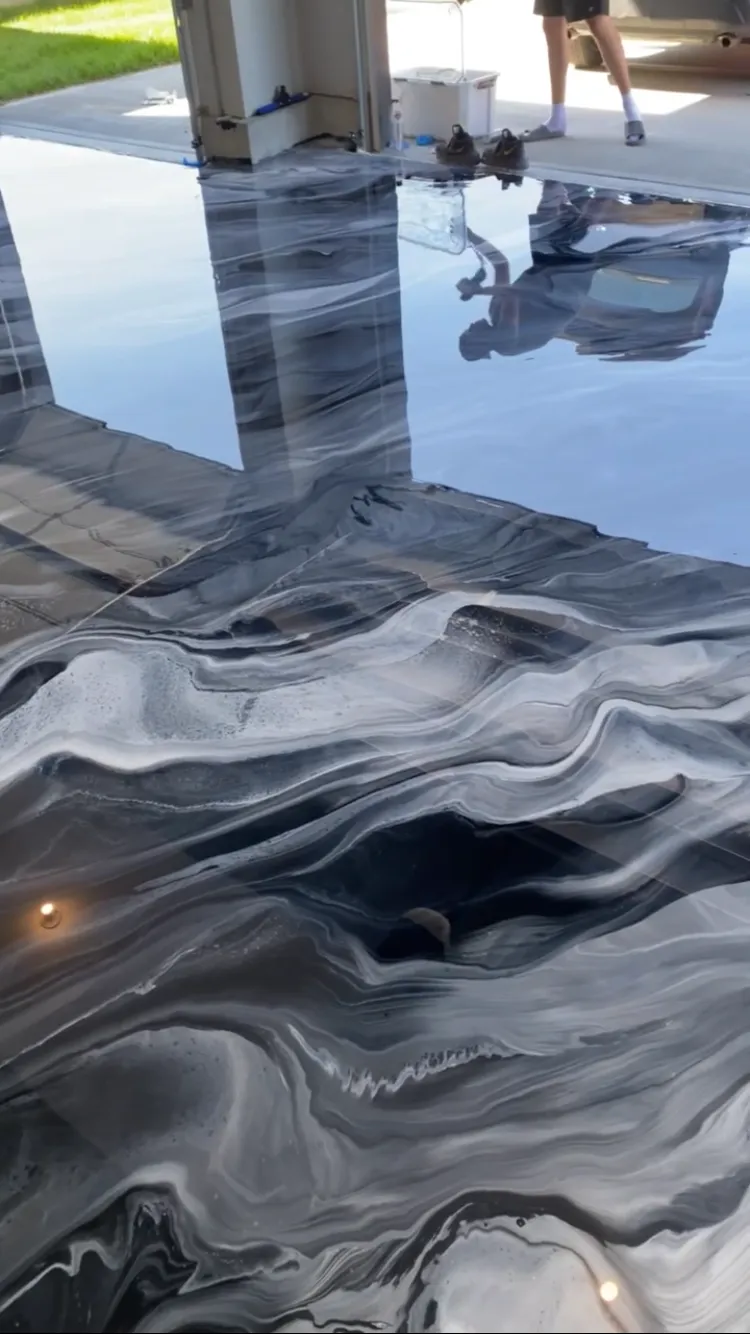
Epoxy Sealers for Residential Floors
Epoxy sealers for residential floors are becoming increasingly popular among homeowners looking for durable, attractive, and low-maintenance flooring solutions. These sealers not only enhance the appearance of floors but also provide a protective barrier against damage, stains, and wear. In this comprehensive guide, we will explore everything you need to know about epoxy sealers, including their benefits, application process, and maintenance tips.
What are Epoxy Sealers?
Definition of Epoxy Sealers
Epoxy sealers are a type of coating made from a combination of epoxy resin and hardener. When mixed, these components undergo a chemical reaction that results in a strong, durable, and adhesive product. Epoxy sealers are commonly used on concrete floors but can also be applied to other surfaces, such as wood and metal. Their versatility makes them an excellent choice for various residential applications.
Types of Epoxy Sealers
There are several types of epoxy sealers available on the market, each designed for specific purposes and preferences:
Water-based Epoxy Sealers: These sealers are easy to apply, have low odor, and are environmentally friendly. They are suitable for indoor applications and provide a clear finish that enhances the natural beauty of the surface beneath.
Solvent-based Epoxy Sealers: Known for their durability and chemical resistance, solvent-based sealers are ideal for high-traffic areas or environments exposed to harsh chemicals. However, they have a stronger odor and require proper ventilation during application.
Clear Epoxy Sealers: These sealers provide a transparent protective layer that enhances the appearance of the underlying surface without altering its color.
Colored Epoxy Sealers: Available in a variety of colors, these sealers allow homeowners to customize their flooring to match their decor.
Decorative Epoxy Sealers: This category includes metallic and flake epoxy sealers that create stunning visual effects, making them perfect for creating unique and aesthetically pleasing floors.
Benefits of Using Epoxy Sealers for Residential Floors
Durability and Longevity
One of the primary advantages of epoxy sealers for residential floors is their exceptional durability. Once cured, epoxy creates a hard, resilient surface that can withstand heavy foot traffic, impacts, and abrasions. According to a study by the American Concrete Institute, properly applied epoxy coatings can last up to 20 years or more, making them a long-term flooring solution.
Aesthetic Appeal
Epoxy sealers enhance the visual appeal of floors, providing a glossy finish that brightens up any space. Homeowners can choose from a wide range of colors and decorative options, allowing for creative designs that complement their home's interior. Metallic epoxy, for example, creates a stunning, three-dimensional effect that can elevate the look of any room.
Easy Maintenance
Maintaining epoxy-sealed floors is a breeze. The smooth surface prevents dirt and grime from accumulating, making cleaning simple. Regular sweeping and occasional mopping with a mild detergent are usually all that's needed to keep the floor looking pristine. Unlike other flooring options, epoxy does not require waxing or polishing, saving time and effort.
Resistance to Stains and Chemicals
Epoxy sealers provide a strong barrier against stains, spills, and harsh chemicals. This makes them an ideal choice for areas prone to messes, such as kitchens and garages. Their resistance to oil, grease, and other substances ensures that your floors remain clean and free from damage.
How to Choose the Right Epoxy Sealer for Your Home
Assessing Your Floor Type
Before selecting an epoxy sealer, it's crucial to assess the type of flooring you have. Concrete floors are the most common surfaces for epoxy applications, but there are also options available for wood and metal. Each surface type may require a different formulation or preparation method, so it's essential to choose accordingly.
Considering Your Environment
The environment where the epoxy will be applied plays a significant role in the selection process. Indoor applications may benefit from water-based sealers, while outdoor areas may require solvent-based options for added durability against the elements. Additionally, consider the climate of your home, as humidity and temperature can affect the curing process.
Budgeting for Epoxy Sealers
Cost is always a consideration when making home improvements. The price of epoxy sealers can vary based on the type, brand, and quantity needed. On average, homeowners can expect to pay between $1 to $7 per square foot for materials, with professional installation costs adding an additional $2 to $5 per square foot. It's essential to budget for both materials and labor if you choose to hire a professional.
DIY vs. Professional Installation
Deciding whether to install epoxy sealers yourself or hire a professional is another critical consideration. DIY installation can save money, but it requires time, effort, and a certain level of skill. If you're confident in your abilities and have the necessary tools, a DIY approach may be suitable. However, for those unfamiliar with the process or looking for a flawless finish, hiring a professional is often the best option.
Application Process for Epoxy Sealers
Surface Preparation
Proper surface preparation is crucial for the success of any epoxy application. The floor must be clean, dry, and free of any contaminants such as oil, grease, or dust. Here are the steps to prepare your floor:
Clean the Surface: Use a degreaser or concrete cleaner to remove any stains or contaminants.
Repair Cracks and Holes: Fill any cracks or holes with a suitable patching compound and allow it to cure.
Etch the Surface: For concrete floors, etching helps create a rough surface that allows the epoxy to bond effectively. This can be done using a concrete etching solution or by grinding the surface.
Rinse and Dry: Rinse the surface thoroughly and allow it to dry completely before applying the epoxy.
Mixing and Applying Epoxy Sealers
Once the surface is prepared, it's time to mix and apply the epoxy sealer. Follow these steps for a successful application:
Mix the Epoxy: Follow the manufacturer's instructions for mixing the resin and hardener. Use a clean bucket and a mixing stick to ensure a thorough blend.
Apply the Epoxy: Use a roller or brush to apply the epoxy evenly across the surface. Start at one corner and work your way towards the exit to avoid stepping on the wet epoxy.
Add Additional Coats: Depending on the product, you may need to apply multiple coats. Allow each coat to cure according to the manufacturer's instructions before applying the next.
Curing Time and Conditions
Curing time for epoxy sealers can vary based on the product and environmental conditions. Typically, epoxy will be tack-free within a few hours, but full curing may take several days. It's essential to keep the area well-ventilated and maintain a stable temperature during the curing process to achieve optimal results.
Tips for a Successful Application
To ensure a successful epoxy application, consider the following tips:
Work in Small Sections: This prevents the epoxy from curing before you can spread it evenly.
Use the Right Tools: Invest in high-quality rollers and brushes for a smooth finish.
Follow Manufacturer Instructions: Each epoxy product may have specific guidelines for mixing and application.
Maintenance and Care for Epoxy-Sealed Floors
Regular Cleaning Practices
Maintaining epoxy-sealed floors is simple. Here are some recommended cleaning practices:
Sweep Regularly: Remove dust and debris with a broom or vacuum.
Mop with Mild Detergent: Use a damp mop with a mild detergent to clean the surface. Avoid harsh chemicals that may damage the epoxy.
Wipe Up Spills Immediately: Quick action can prevent stains and damage.
Repairing Minor Damage
Despite their durability, epoxy floors can experience minor damage over time. If you notice scratches or chips, you can repair them by following these steps:
Clean the Area: Remove any dirt or debris from the damaged area.
Sand the Edges: Lightly sand the edges of the damage to create a smooth surface.
Apply Epoxy Filler: Use an epoxy filler to fill in the damaged area, following the manufacturer's instructions.
Sand and Polish: Once the filler has cured, sand it smooth and polish the area to match the surrounding surface.
When to Reapply Epoxy Sealers
Over time, even the best epoxy sealers may require reapplication. Signs that it’s time to reapply include:
Fading or Discoloration: If the color has faded significantly, it may be time for a refresh.
Stains or Damage: Persistent stains or damage that cannot be repaired may necessitate a new coat.
Peeling or Chipping: If the epoxy is peeling or chipping, it’s a clear indication that reapplication is needed.
Frequently Asked Questions (FAQs) about Epoxy Sealers
How long do epoxy sealers last?
With proper application and maintenance, epoxy sealers can last anywhere from 10 to 20 years, depending on the type of epoxy and the conditions of the environment.
Are epoxy sealers safe for homes with pets and children?
Yes, epoxy sealers are generally safe for homes with pets and children. However, it's essential to allow the epoxy to cure completely before allowing foot traffic to ensure safety.
Can I apply epoxy sealers over existing coatings?
In most cases, epoxy sealers can be applied over existing coatings, but proper surface preparation is crucial. Ensure that the existing coating is clean, sound, and compatible with epoxy.
What is the difference between epoxy sealers and epoxy coatings?
Epoxy sealers are primarily used for protection and enhancement, while epoxy coatings are thicker and provide a more robust surface that can withstand heavy wear and tear.
Are there eco-friendly epoxy options available?
Yes, many manufacturers now offer eco-friendly epoxy sealers that are low in volatile organic compounds (VOCs), making them safer for both the environment and indoor air quality.
Conclusion
In summary, epoxy sealers for residential floors offer a durable, attractive, and low-maintenance flooring solution that can enhance the beauty of your home while providing long-lasting protection. By understanding the different types of epoxy sealers, their benefits, and the application and maintenance processes, homeowners can make informed decisions about their flooring needs. Whether you choose to tackle the project yourself or hire a professional, epoxy sealers can transform your floors into a stunning and functional space.
Call to Action
Ready to enhance your home with epoxy sealers? Consult with professionals or explore DIY options today to discover how epoxy sealers can elevate your residential floors!



